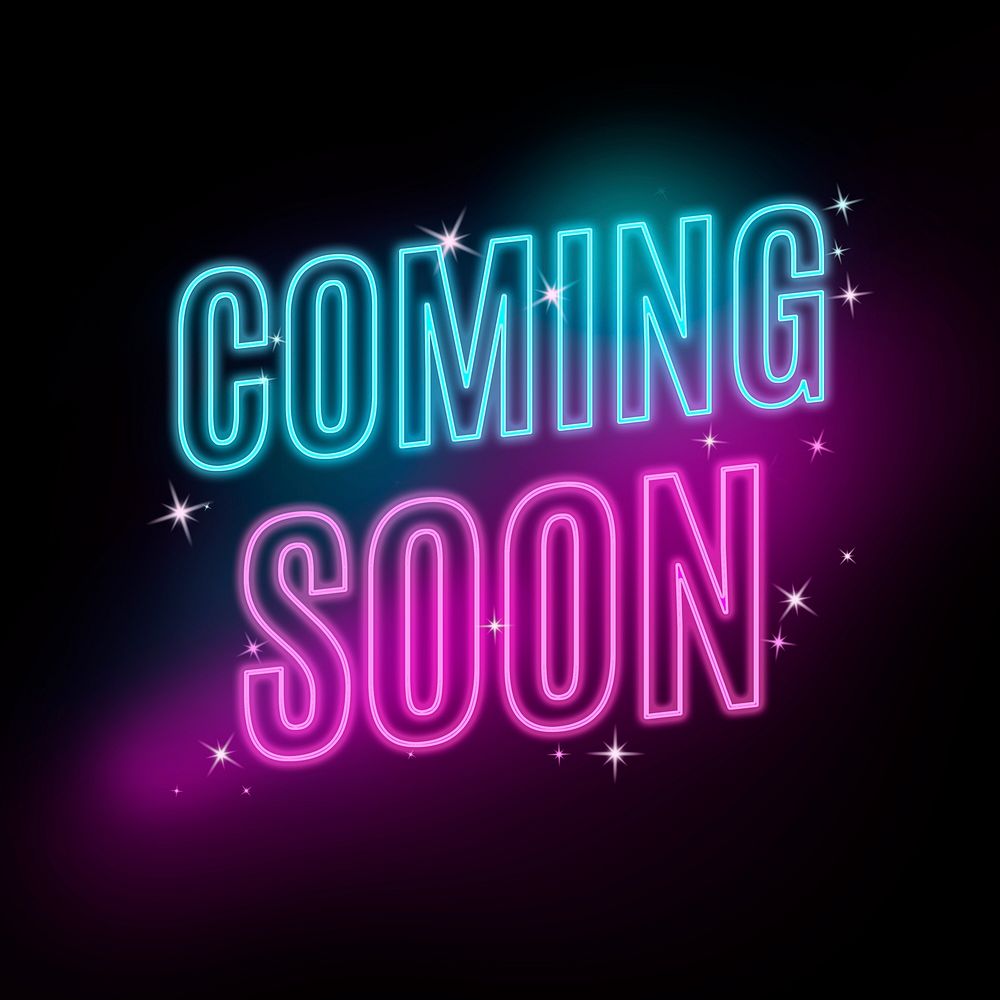When we think about time, it often feels like a river, always moving, never stopping. We talk about what happened a while ago, what is happening right now, and what is still to come. Among all these ways we talk about when things happen, there is one little word that holds a special kind of feeling, a sense of something just about to unfold. It is a word that hints at a moment that is not here yet, but also not far off either, a gentle whisper of what's next.
This particular little word, "soon," carries with it a distinct kind of expectation. It suggests a time that is not too far off, a moment that will arrive without an overly long waiting period. We use it when we are talking about something that is on its way, something that will show up or be ready in a brief period. It is a word that often comes with a bit of a hopeful feeling, or perhaps a sense of things moving along at a comfortable pace, you know, not too fast, not too slow.
So, what does this word really mean when we hear it, and how does it shape our thoughts about what is about to happen? We are going to take a closer look at the different ways this word, often linked with the idea of "Previn" in some contexts, shows up in our daily chats and what it truly brings to mind. It's almost like a small promise, a hint of things coming into being very shortly, and how that makes us feel.
Table of Contents
- What Does 'Soon' Really Signify?
- How We Experience 'Soon' in Everyday Life
- The Many Shades of 'Soon'
- The Quiet Influence of 'Soon'
What Does 'Soon' Really Signify?
The core idea behind "soon" is pretty straightforward: it speaks of something happening without a lot of time passing by. It is a simple concept, yet it holds a lot of different feelings and expectations, depending on who is saying it and what they are talking about. You know, it is not quite "now," but it is definitely not "later" in the distant future either. It occupies that interesting space in between, where things are still forming but are on a quick path to being here.
When someone tells you something will happen "soon," it typically means they expect it to occur within a short window of moments from the present. It implies a quick turnaround, a brief waiting period. For instance, if you hear that a bus should be here soon, it gives you the idea that you won't be standing around for an overly long stretch of time, which is kind of reassuring, isn't it? It suggests a proximity in time that brings a certain level of comfort or, sometimes, a bit of eagerness, too.
The way we use "soon" can tell us a lot about the pace of life, actually. It is a word that fits into conversations about immediate plans, about things that are almost ready for us to experience. It is a common word, heard everywhere, and it has many different ways to be expressed, but the basic idea always stays the same: a brief amount of time from this very moment, more or less.
The Immediate Sense of Soon Previn
When we think about the immediate sense of "soon," perhaps in a "soon Previn" kind of situation, we are talking about something that is on the verge of happening, almost right now. This is the "shortly" or "presently" aspect of the word. It is when the time frame is truly quite small, perhaps just a few moments away. For example, if someone says "dinner will be ready soon," it often means you can expect to sit down and eat in a very brief period, perhaps just minutes, which is usually a welcome thought.
This immediate meaning carries a definite sense of urgency, but not necessarily a stressful one. It is more about things coming to fruition quickly. It is the kind of "soon" that makes you perk up your ears, because whatever is being talked about is truly just around the corner. It is like waiting for a kettle to whistle; you know it is going to happen in a very short span of moments, and that is a pretty clear expectation.
The word "soon" in this immediate context is very much about the next thing on the list, the very next step. It is about what comes right after this, without much of a break in between. It is a powerful little word for setting expectations for a rapid arrival, and it does that job rather well, you know, communicating that sense of quickness.
Anticipation and the Word 'Soon'
Beyond just the immediate sense, "soon" also carries a significant feeling of looking forward to something. It is often used when there is a sense of something exciting or important that is about to take place, creating a feeling of hopeful expectation. Think about a child waiting for a birthday present; they might ask, "Will I get it soon?" This isn't just about time; it is about the feeling connected to that coming moment, which is quite powerful.
This aspect of "soon" is all about the build-up, the pleasant waiting period for something good. It suggests that the thing you are waiting for is drawing nearer, creating a little flutter of excitement. It is a word that can make a promise feel closer, making the wait a bit more bearable because you know it won't be an overly long one. It is a word that makes us feel like the future is almost within reach, really.
The word "soon" can, in this way, add a layer of warmth and eagerness to a statement. It is not just a cold measurement of time; it is a human way of expressing that something desired is on its way. It is a word that helps us manage our expectations, letting us know that the period of waiting will be brief, and the desired outcome is approaching, which is a comforting thought, in a way.
How We Experience 'Soon' in Everyday Life
Our daily lives are filled with moments where "soon" plays a part. From simple household chores to bigger plans, the idea of things happening in a short period is constantly present. We might say, "I'll clean up soon," or "The movie starts soon." These everyday uses show how deeply ingrained this concept of brief future time is in our communication, and it is a very common way we talk about our intentions, too.
The word "soon" helps us organize our thoughts and our actions. It allows us to prioritize things that need to be done in the near future without setting a strict deadline. It is a flexible term that adapts to many different situations, making it incredibly useful for planning and coordinating with others. It is a word that helps us keep things moving along, without feeling too rushed or too slow, you know?
It is interesting how "soon" can be both a promise and a gentle push. It can reassure someone that help is on its way, or it can be a reminder to ourselves to get something done without undue delay. It is a word that bridges the gap between the present moment and the immediate future, making transitions feel smoother and expectations clearer, which is pretty helpful, actually.
Is 'Soon' Always the Same for Everyone?
This is where things get a bit interesting. While the dictionary definition of "soon" points to a short time frame, the actual experience of "soon" can differ quite a lot from one person to another, or even from one situation to another. What feels like "soon" to a child waiting for a treat might feel like an eternity to an adult waiting for important news. It is a rather subjective concept, isn't it?
The context really shapes our perception of "soon." If you are talking about something very quick, like a light turning green, "soon" might mean a second or two. But if you are talking about a long-term project, "soon" could mean a few weeks or even months. The scale of the event changes our interpretation of that short period. It is all about perspective, more or less.
This flexibility is what makes "soon" such a versatile word, but also sometimes a source of mild confusion. It requires a bit of shared understanding between people for it to be truly effective. Without that shared context, one person's "soon" might be another person's "a little while," which can lead to some funny misunderstandings, sometimes.
The Many Shades of 'Soon'
The word "soon" is not a single, fixed point in time; it is more like a spectrum, with various shades of meaning depending on how it is used. It can be incredibly immediate, or it can imply a slightly longer, but still brief, wait. It is a word that captures the idea of proximity in time, but the exact distance can vary, which is quite fascinating, really.
We often find "soon" paired with different verbs or in different scenarios that subtly shift its meaning. For example, "I'll be there soon" feels different from "The new store will open soon." Both imply a short waiting period, but the duration of that "short period" adjusts to the nature of the event, which is pretty clever, you know?
This adaptability is a big part of why "soon" is such a common and useful word in everyday talk. It allows for a degree of imprecision that is often helpful, especially when exact timings are not known or not necessary. It communicates the general idea of "not long from now" in a very effective way, which is something we all appreciate, I think.
When 'Soon' Means 'Right Away'
There are times when "soon" really does mean "almost instantly" or "without any delay at all." This is the sense of "soon" that is very close to "now" or "immediately." For instance, if you are in an emergency situation and someone says "help is coming soon," you expect it to arrive very quickly, without any undue time lapse. It is a kind of "soon" that carries a very strong sense of immediacy, isn't it?
This particular shade of "soon" often implies a rapid response or a very quick turnaround. It is about things happening in a blink, or nearly so. When we use it this way, we are trying to convey that the gap between the present moment and the event is almost nonexistent. It is a powerful way to communicate urgency without sounding panicked, which is a neat trick, actually.
In these situations, "soon" is less about anticipation and more about a rapid succession of events. It is about things happening one after another with very little space in between. It is a word that, in this context, truly minimizes the waiting period to almost nothing, which is pretty important when quick action is needed, you know.
When 'Soon' Carries a Gentle Promise
On the other hand, "soon" can also carry a softer, more reassuring tone, implying a gentle promise of something to come, without the pressure of immediate arrival. This is the "before long" or "presently" aspect, where the waiting period is still short, but not necessarily seconds or minutes. It is a "soon" that feels more like a comforting thought, a sign that things are progressing as they should.
Consider someone saying, "We'll see each other again soon." This isn't usually a promise for the next hour, but rather a hopeful indication that the next meeting won't be in the distant future. It is a "soon" that fosters connection and keeps spirits up, suggesting that pleasant events are on the horizon, which is a lovely feeling, too.
This use of "soon" is about setting an expectation that is both hopeful and realistic. It acknowledges that some time will pass, but reassures that it won't be an extended period. It is a word that, in these instances, truly builds a bridge of positive expectation, making the future feel a little brighter and more accessible, which is quite nice, more or less.
The Quiet Influence of 'Soon'
The word "soon" has a quiet but persistent influence on our thoughts and actions. It shapes our perception of time, our patience, and our level of anticipation. It is a word that, by its very nature, encourages us to look forward, to prepare for what is just around the corner. It is a small word that has a pretty big impact on how we organize our mental calendars, actually.
It helps us to manage our daily flow, letting us know when to expect things to change or when a new phase is about to begin. It is a signal, a gentle heads-up that something is coming into view. This quiet influence makes "soon" a very important part of how we communicate about the unfolding of events, making sure everyone is more or less on the same page about timing.
The repeated use of "soon" in our language shows just how much we rely on this idea of a brief, upcoming period. It is a testament to our human need to categorize and understand time, even when that understanding is a bit flexible. It is a word that truly helps us to feel more in tune with the rhythm of things, which is a comforting thought, sometimes.
The Emotional Weight of 'Soon' Previn
There is a definite emotional weight that comes with the word "soon," perhaps especially when we consider it in a "soon Previn" sort of context, where something specific is expected. This weight can be one of excitement, as mentioned before, for something desired that is drawing near. The thought of "soon" can bring a smile to our faces when we are looking forward to a pleasant event, which is a lovely thing.
However, the emotional weight can also be one of anxiety or impatience, particularly if the "soon" feels too long in coming, or if the event itself is something we are dreading. The expectation of something "soon" can heighten our feelings, whether those feelings are positive or negative. It is a word that truly amplifies the emotional landscape of waiting, you know.
This emotional connection is what makes "soon" more than just a simple adverb of time. It is a word that taps into our hopes, our fears, and our general outlook on what the immediate future holds. It is a word that, in its own quiet way, reflects the very human experience of living through time, and anticipating what is just about to arrive, which is pretty profound, really.
- Sasha Farber Age
- Addison American Eagle
- Tevin Campbell
- Drake Girlfriend
- Who Played Todd In Breaking Bad


